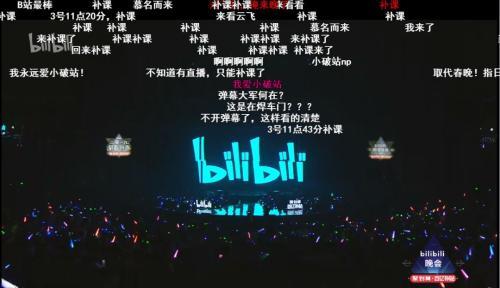
The bullet screen of Chinese online entertainment platform Bilibili.
86.43 percent of Chinese college students enjoy bullet-screen comments when watching videos, as they prefer the interaction with other viewers; 75.13 percent of them believe that these comments can bring them happiness, according to a recent survey.
A questionnaire survey on "Generation Z bullet-screen comment culture" has recently been conducted by China Youth Daily among 1,976 college students across the country. Generation Z often refers to the generation that was born between 1996-2010, following millennials.
The survey results showed that 61.34 percent of the respondents often choose to enable the function of bullet-screen comments when watching videos. However, 38.66 percent prefer not to; the main reason is that these comments may obscure the pictures and affect the visual experience.
Huang Xiaobei of a university in south China's Guangxi Zhuang Autonomous Region first came into contact with bullet-screen comments when she was watching a movie called "Tiny Times". "I couldn't close the comments on the web page, so I was forced to watch them," Huang recalled.
However, after this experience, Huang Xiaobei has changed from "hating the comments, being bored of them" to "considering this form of interaction to be very interesting." Huang Xiaobei revealed that: "At first, I feel lonely and feel bored when I watch a video alone; however, afterwards I am more and more fond of reading bullet-screen comments."
Huang Xiaobei compare bullet-screen comments to "popcorns". "Bullet-screen comments are usually suitable for short expressions, while they are not suitable for deep-seated expressions. Like popcorns, they are not nutritious, but sweet, delicious and suitable for relieving boredom. "
Meanwhile, according to the survey, 67.27 percent of the youngsters regard bullet-screen comments as a way to express their views; 63.05 percent of them believe that the comments serve as a good supplement to the video content, and 53.19 percent of respondents express a belief that bullet-screen comments help them find like-minded people all over the world regardless of time and space.
After a certain period of development and changes, bullet-screen comments have been widely adopted by mainstream video websites, and become a way of interactive communication with a high degree of public acceptance and recognition, said Professor Ma Zhonghong from Phoenix Communication College of Soochow University.
"Now bullet-screen comments have been available for video programs on all major platforms," said Professor Ma Zhonghong, adding that the comments have progressed from a simple tool initially to a unique culture.


